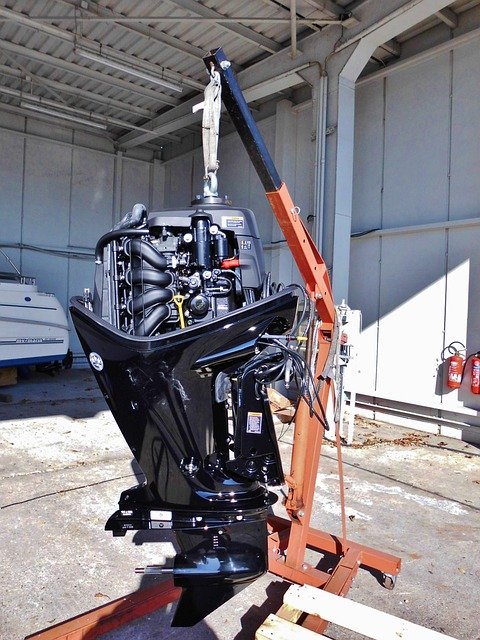Train as a Nurse in Calgary — Affordable Options, Career-Ready, Recognized
Calgary offers nursing education with options for low tuition fees or financial aid, providing hands-on hospital experience and recognized diplomas. Start your career in healthcare with comprehensive support for local students. This qualification opens doors to strong professional positions within the region.

Calgary’s healthcare landscape is expanding rapidly, creating excellent opportunities for those interested in pursuing a career in nursing. The city is home to several reputable institutions offering nursing programs that combine classroom learning with practical clinical experience. These programs are designed to meet the standards set by the College of Registered Nurses of Alberta (CRNA) and prepare graduates to write the National Council Licensure Examination (NCLEX-RN) required for practice in Canada.
Nursing education in Calgary typically includes a mix of theoretical coursework, laboratory practice, and supervised clinical placements in hospitals, clinics, and community health settings. Students gain exposure to diverse patient populations and healthcare environments, building the skills and confidence needed to succeed in the field. Programs range from two-year practical nursing diplomas to four-year Bachelor of Nursing degrees, allowing students to choose the pathway that best fits their career goals and circumstances.
What Makes Nursing Education Affordable in Calgary?
Affordability is a key concern for many prospective nursing students. In Calgary, tuition costs for nursing programs vary depending on the institution and program type. Public colleges and universities generally offer more affordable tuition compared to private institutions. For example, diploma programs at public colleges may range from approximately CAD 6,000 to CAD 10,000 per year for domestic students, while Bachelor of Nursing programs at universities typically cost between CAD 7,000 and CAD 12,000 annually.
Beyond tuition, students should budget for additional expenses such as textbooks, lab fees, uniforms, clinical supplies, and transportation. Many institutions offer financial aid options, including scholarships, bursaries, grants, and student loans. Some healthcare employers in Calgary also provide tuition reimbursement or sponsorship programs for students who commit to working with them after graduation. Researching all available funding sources can significantly reduce the financial burden of nursing education.
Prices, rates, or cost estimates mentioned in this article are based on the latest available information but may change over time. Independent research is advised before making financial decisions.
How Does Paid Clinical Training Work?
One of the most valuable components of nursing education is clinical training, where students apply their knowledge in real healthcare settings under the supervision of experienced nurses and instructors. While most clinical placements during formal education are unpaid, they provide essential hands-on experience that is critical for developing competence and confidence.
However, some programs and healthcare facilities in Calgary offer paid clinical externships or summer employment opportunities for nursing students. These positions allow students to earn income while gaining additional practical experience. Paid opportunities may be available through hospitals, long-term care facilities, and community health organizations. Students are encouraged to inquire with their program coordinators and local healthcare employers about such opportunities, as they can provide both financial support and valuable resume-building experience.
What Does a Recognized Diploma Mean for Your Career?
Graduating from a recognized nursing program is essential for professional licensure and career advancement. In Alberta, nursing programs must be approved by the College of Registered Nurses of Alberta to ensure they meet provincial standards for education and practice. Graduates from recognized programs are eligible to apply for licensure and write the NCLEX-RN examination, which is required to practice as a registered nurse in Canada.
Holding a recognized diploma or degree opens doors to a wide range of career opportunities in hospitals, clinics, public health agencies, schools, and specialized care settings. It also provides a foundation for further education and specialization in areas such as critical care, pediatrics, mental health, or nurse practitioner roles. Employers across Canada and internationally recognize Alberta nursing credentials, offering graduates flexibility and mobility in their careers.
Why Is There High Demand for Nurses in Calgary?
The demand for nurses in Calgary and across Alberta remains strong due to several factors. The province’s growing and aging population requires more healthcare services, particularly in areas such as geriatrics, chronic disease management, and home care. Additionally, the healthcare system continues to expand to meet the needs of diverse communities and address gaps in rural and underserved areas.
According to recent workforce reports, nursing is consistently listed among the top in-demand professions in Alberta. This demand translates into strong job prospects for new graduates, competitive compensation, and opportunities for career growth. Many employers actively recruit nursing graduates, and some offer sign-on bonuses, relocation assistance, and flexible work arrangements to attract qualified candidates.
What Student Support Services Are Available?
Nursing programs in Calgary recognize that students face unique challenges and provide a range of support services to help them succeed. These services typically include academic advising, tutoring, study groups, mental health counseling, and career services. Many institutions also offer peer mentorship programs that connect new students with upper-year nursing students who can provide guidance and encouragement.
Financial aid offices assist students in navigating funding options, while accessibility services support students with disabilities or learning differences. Some schools have dedicated nursing student centers where students can access resources, study spaces, and professional development workshops. These support systems are designed to help students balance the demands of rigorous coursework, clinical placements, and personal responsibilities.
| Institution Type | Program Length | Estimated Annual Tuition (Domestic) |
|---|---|---|
| Public College Diploma | 2 years | CAD 6,000 - CAD 10,000 |
| University Bachelor Degree | 4 years | CAD 7,000 - CAD 12,000 |
| Accelerated Bachelor Program | 2-3 years | CAD 8,000 - CAD 13,000 |
Prices, rates, or cost estimates mentioned in this article are based on the latest available information but may change over time. Independent research is advised before making financial decisions.
Pursuing nursing education in Calgary offers a pathway to a stable, meaningful, and well-compensated career. With recognized programs, strong institutional support, and excellent job prospects, Calgary provides an ideal environment for aspiring nurses to develop their skills and launch successful careers in healthcare. Prospective students are encouraged to research specific programs, visit campuses, and connect with admissions advisors to find the best fit for their educational and professional goals.




